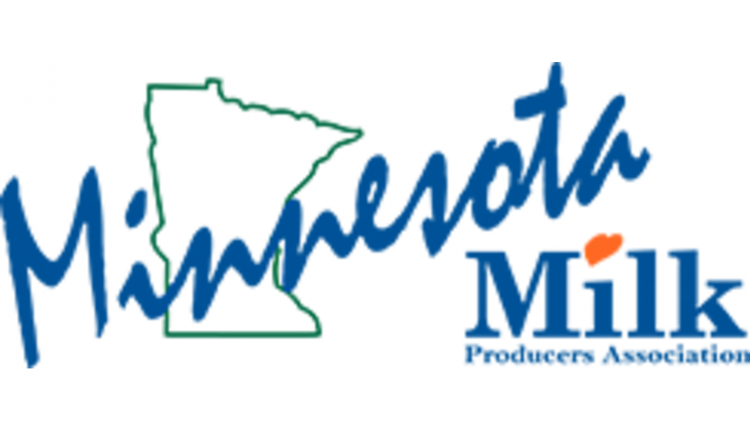
The U.S. dairy industry commended Robert Lighthizer, the newly confirmed U.S. Trade Representative, for taking swift action under the Bipartisan Congressional Trade Priorities and Accountability Act (TPA) to begin the process for modernizing the North American Free Trade Agreement (NAFTA).
In a notification letter sent today to Congress, Ambassador Lighthizer outlined some of the areas of the agreement that are either outdated or missing – several of which are important to the U.S. dairy industry – and reaffirmed commitment to pursuing the trade priorities outlined by TPA, including goals related to market access and curbing the abuse of geographical indications. He also emphasized the importance of effectively implementing and aggressively enforcing the commitments made by Canada and Mexico, two of the dairy industry’s top trade partners.
The International Dairy Foods Association (IDFA), the National Milk Producers Federation (NMPF) and the U.S. Dairy Export Council (USDEC) have repeatedly urged administration officials and legislators to focus on maintaining what has worked well, such as trade with Mexico, the top market for U.S. dairy exports. The dairy groups have also continued to call for improving market access to Canada and tackling that country’s expanding list of protectionist policies and other barriers to U.S. dairy exports.
“As an industry, we fully support the administration’s call to modernize NAFTA. Without this trade agreement and the market access it provides, the United States would stand to lose nearly $2 billion annually in dairy exports and tens of thousands of farming and manufacturing jobs in communities across the country,” said Michael Dykes, D.V.M., IDFA president and CEO. “The issues of geographical indications, intellectual property rights and ways to resolve sanitary and phytosanitary measures (SPS) are also of keen interest to the dairy industry. We look forward to working with Ambassador Lighthizer and other Trump Administration officials during the renegotiation process to provide helpful data and input.”
“We agree with Ambassador Lighthizer that the current NAFTA agreement has areas upon which we can build as the renegotiation process begins, including the market we have developed in Mexico,” said Jim Mulhern, president and CEO of NMPF. “Obviously, dairy trade with Canada – where we continue to face 200%-300% tariffs and a slew of nontariff policies that distort dairy trade – is an entirely different story, and we need to address it as part of these talks. Central to any successful NAFTA negotiations will be changes to Canada’s new policies designed to harm bilateral trade and dump their structural dairy surplus on the world market.”
"With this first step, I now encourage the administration to swiftly commence modernization negotiations with our NAFTA partners and prioritize their quick conclusion," said Tom Vilsack, president and CEO of USDEC. “Mexico is our only $1 billion dairy market; finding a replacement for sales that are so critical to supporting tens of thousands of jobs across this country is no small task, so preserving it is essential. At the same time, numerous opportunities exist to shore up open trade and further deepen it with our NAFTA partners, such as addressing Canada’s tariff and nontariff constraints on dairy trade, instituting stronger SPS commitments and ensuring that geographical indications are not used to restrict the use of common names.”
The International Dairy Foods Association (IDFA), Washington, D.C., represents the nation's dairy manufacturing and marketing industries and their suppliers with a membership of nearly 525 companies within a $125-billion a year industry. IDFA is composed of three constituent organizations: the Milk Industry Foundation (MIF), the National Cheese Institute (NCI) and the International Ice Cream Association (IICA). IDFA's nearly 200 dairy processing members operate more than 600 manufacturing facilities and range from large multi-national organizations to single-plant companies. Together they represent more than 85 percent of the milk, cultured products, cheese, ice cream and frozen desserts produced and marketed in the United States. Visit IDFA at www.idfa.org.
The National Milk Producers Federation (NMPF), based in Arlington, Va., develops and carries out policies that advance the well-being of U.S. dairy producers and the cooperatives they collectively own. The members of NMPF's cooperatives produce the majority of the U.S, milk supply, making NMPF the voice of dairy producers on Capitol Hill and with government agencies. For more on NMPF's activities, visit www.nmpf.org.
The U.S. Dairy Export Council (USDEC) is a non-profit, independent membership organization that represents the global trade interests of U.S. dairy producers, proprietary processors and cooperatives, ingredient suppliers and export traders. Its mission is to enhance U.S. global competitiveness and assist the U.S. industry to increase its global dairy ingredient sales and exports of U.S. dairy products. USDEC accomplishes this through programs in market development that build global demand for U.S. dairy products, resolve market access barriers and advance industry trade policy goals. USDEC is supported by staff across the United States and overseas in Mexico, South America, Asia, Middle East and Europe.


